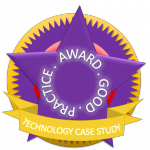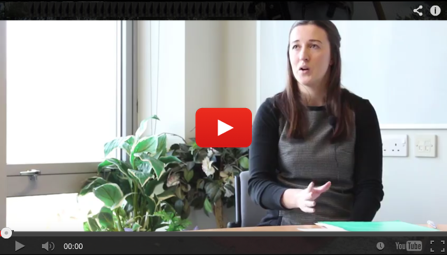 The Journals tool in Blackboard is a private space where students can post opinions, ideas and concerns. This case study, shared by Maria McCann (Widening Participation Manager), describes how the Journals tool was used within a research project, to understand the living, learning and emotional journeys of around 100 new students’ in their first term at Edge Hill University.
The Journals tool in Blackboard is a private space where students can post opinions, ideas and concerns. This case study, shared by Maria McCann (Widening Participation Manager), describes how the Journals tool was used within a research project, to understand the living, learning and emotional journeys of around 100 new students’ in their first term at Edge Hill University.
When the Student Journal project was envisioned, Maria and the team hoped that a tool within the university’s virtual learning environment (VLE) could be used to help document the student journey. Maria felt it sensible to use, a system already set up, open to all students on any course, something that they would be getting introduced to anyway and would continue to use throughout the lifetime of their degree programme.
To learn more about the Blackboard tools available to support student participation and feedback, Maria contacted Mark Wilcock, a Learning Technologist within the Learning Services, Learning Technology Development Team.
Maria met with Mark, explained her ideas, described what she wanted to achieve and what her key criteria were – she needed something that would allow students to record their thoughts in a single, secure place, that they could access anytime and anywhere. It was from this starting point that Mark (Learning Services) and Maria (Student Recruitment) were able to work collaboratively, to identify the most suitable tools and settings for her project.
Mark recommended a ‘Blackboard’ Organisation, which is similar to a Course area but can be used for non-credit bearing activity to house the research activity, and the Journals tool, which would provide the private online space, for students to write and submit their journals each week. The Journal tool settings were also suggested as a way to ‘release’ and ‘lock’ the weekly journals, at the same time each week, to keep the students on track.
It was decided to theme each week in a way that would be relatable to each individual student, regardless of programme studied. The themes were planned to mirror the systems, processes and services most students would experience and provided a ‘loose’ framework for students to base their journal entry on each week. Students were encouraged to think about key aspects of the theme and further guidance was given breaking down the themes into key points; however students were encouraged to think and write in depth, rather than trying to address all the points listed. Although the guidance was used widely by the students, it was not intended to be prescriptive and students were encouraged to think about what they had experienced in that particular week, their ‘journey’, rather than trying to ‘fit’ the framework. This was reiterated to the students in the briefing at the start of the project as well as emails and ‘posts’ to the organisation on Learning Edge. The benefits to providing a framework allowed quick reading and analysis for the reader.
This combination of Organisation and Journals provided the perfect platform for the research. Participants (and the researcher) had 24 hour access via their tablet, smart phone, PC or laptop, as well as providing complete anonymity (except from the reader-researcher).
Here Maria talks more about her experience whilst working on the project:
 Information about the Student Recruitment Research Activity
Information about the Student Recruitment Research Activity
The Student Journey Programme is being managed by the Director of Student Recruitment and Administration aims to:
- Provide an equitable, consistent and seamless high quality experience for all students from first enquiry through to graduation.
- Provide services, systems and processes which are recognised as sector-leading nationally by prospective and current students and staff.
This Journal Project sits within the wider Student Journey Programme. Its aims are:
- To map interactions, activities and events where students engage with the university through its services, systems and processes- encompassing pre-enrolment and through the first 8 weeks of term as a first year.
- To understand students’ emotional responses, perceptions, views and behaviours in relation to those services, systems and processes.
- To provide a platform for students (as participants) to define what has the most impact on them and their learning experience (both ‘good’ and ‘not-so-good’ as defined by them).
- To identify areas of good practice across the university (at different student ‘touch points’) and make recommendations for further enhancement in services being delivered to students.
Want to find out more about Blackboard’s Journal tool and Blackboard Organisations? Contact your Faculty Learning Technology Development Officer.
Maria McCann
(Widening Participation Manager)
Mark Wilcock
(Learning Technology Development Officer)




